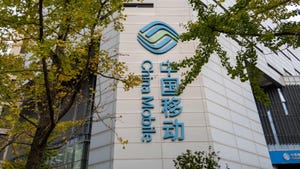Core Internet players will 'easily absorb' COVID-19-induced traffic surge, Internet Society says
Meanwhile, closer to home, Comcast expands and enhances Internet Essentials, AT&T suspends data caps, and Charter declares its network ready to manage expected data wave in response to COVID-19 pandemic.

Amid lockdowns, school closures and an influx of at-home workers as part of efforts to control the spread of COVID-19, questions are swirling about whether the world's Internet infrastructure will buckle under the stress of the anticipated surge in data usage.
While the impact and effects of those spikes will vary by region and by individual ISPs, one leading industry organization believes that the Internet core infrastructure is positioned to cope with what's to come.
"Many are wondering if the Internet can handle the strain of rapid traffic growth and increased latency," David Belson, senior director of Internet research and analysis at The Internet Society, wrote in this blog post. "Will it cause a catastrophic failure of the Internet? The answer: not likely."
"Core Internet infrastructure providers should be able to easily absorb the increase in traffic and demand, especially if the growth is gradual over a period of days, weeks, or months," Belson added. He noted that cloud infrastructures should have sufficient additional compute, storage and bandwidth capacity "to scale their systems as necessary."
While that view is largely centered on content delivery infrastructure players such as Akamai and Google, Belson adds that Internet Exchange Points will also help keep traffic local and the overall load in check.
But the "tools themselves" represent the more likely place for failure, he added, pointing to recent problems in China where streaming services and apps such as Baidu's iQivi, DingTalk (a videoconferencing service) and WeChat experienced crashes due to increased traffic following the spread of COVID-19.
ISP action
Meanwhile, closer to home (and the business), cable operators and telcos are also confident they can handle the coming load or have updated their individual services or policies to help prepare for it.
"Our network is built to sustain maximum capacity during peak usage, which is typically in the evenings, so a surge during the day would be well within our capabilities to manage," said an official with Charter Communications, which completed its DOCSIS 3.1 network upgrade more than a year ago. "We also offer a low-cost, high-speed broadband program for low income households to help them get online. Charter continues to closely monitor the situation and has business and workforce continuity plans in place and will adjust these plans as appropriate to best serve all our customers."
Update: Charter announced Friday that, starting March 16, it will commit over the following 60 days to offer free broadband and Wi-Fi access up to 100 Mbit/s to homes with students without a broadband subscription from the MSO (Charter will also waive install fees for new student households); to partner with schools about tools for remote learning; and open up Wi-Fi hotspots in its footprint for public use. Charter, which does not cap its residential broadband service, added it will continue to offer Spectrum Internet Assist, a low-cost broadband program delivering speeds up to 30 Mbit/s downstream.
Meanwhile, Comcast, in response to the COVID-19 pandemic, announced on Thursday that qualifying families can sign up for 60 days of complementary Internet Essentials service, an offering tailored for low-income households that regularly sells for $9.95 per month. Comcast also upgraded the speeds of Internet Essentials from 15 Mbit/s down and 2 Mbit/s up, to 25 Mbit/s down and 3 Mbit/s up on a going forward basis. That move also enables Internet Essentials to match the FCC's current speed definition of "broadband." Like Charter, Comcast has also completed its D3.1 network upgrade, enabling downstream speeds up to 1 Gbit/s.
Looking beyond the individual activities of cable operators, the NCTA–The Internet & Television Association, announced this week that, so far, its members in local areas most affected by the COVID-19 outbreak "have reported modest, but manageable changes in consumer Internet usage."
"We remain vigilant in monitoring and managing network performance around the clock and are confident that our networks will perform well in adapting to any changes in consumer behavior that may result as a consequence of a community's response to COVID-19," the organization added.
On the telco side, AT&T has also prepared for an expected surge in usage, announcing Thursday that it is waiving Internet data overages for customers on usage-based service plans and that it will continue to offer Access from AT&T, a service for qualified low-income households delivering up to 10 Mbit/s, for $10 per month.
As reported by Light Reading on Thursday, Verizon said it has increased network spending for 2020 by about $500 million – to a range of $17.5 billion to $18.5 billion versus earlier guidance of $17 billion to $18 billion, partly in response to the expected effects of COVID-19.
More feedback sought
According to Multichannel News, a dozen Democratic House members have contacted the CEOs of several major service providers (including AT&T, Comcast, T-Mobile, CenturyLink, Altice USA, Verizon and Frontier Communications) to explain how they are preparing to deal with possible closures and disruptions related to the COVID-19 pandemic.
That inquiry included a focus on millions of school-aged children without access to home broadband, how the service providers are preparing for a possible increase in customer calls, and how a shift from commercial traffic to more residential traffic over a long period could strain networks.
Additionally, FCC Chairman Ajit Pai spoke with broadband providers and trade groups on Thursday about plans related to the COVID-19 pandemic, including an expansion of discounted service for low-income people and the easing of data limits, according to Axios. The FCC is expected to share more details today, the report said.
Related posts:
— Jeff Baumgartner, Senior Editor, Light Reading
About the Author(s)
You May Also Like












